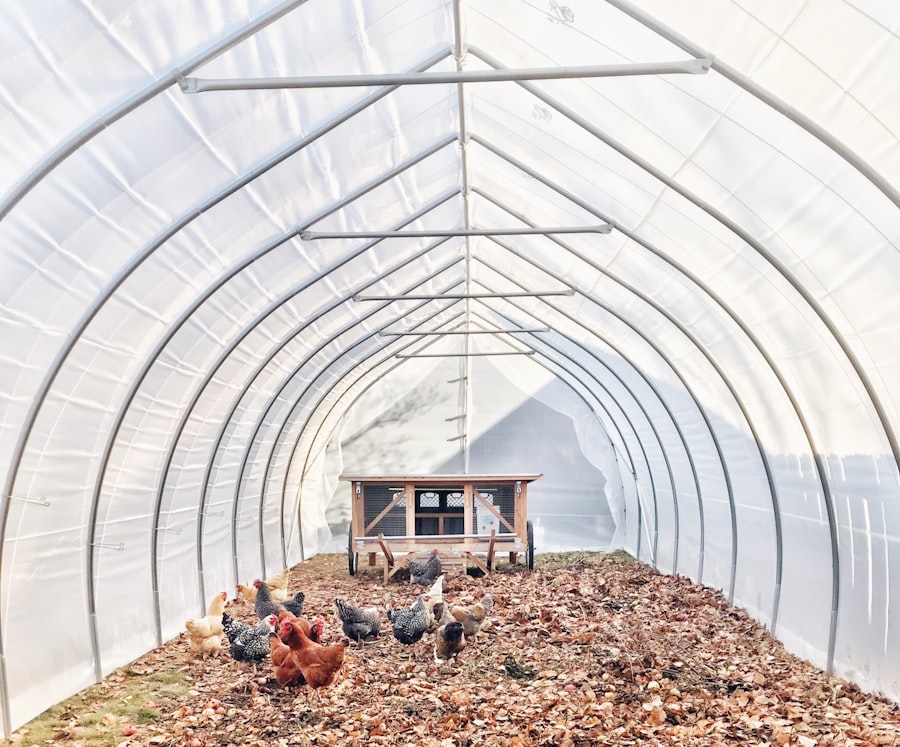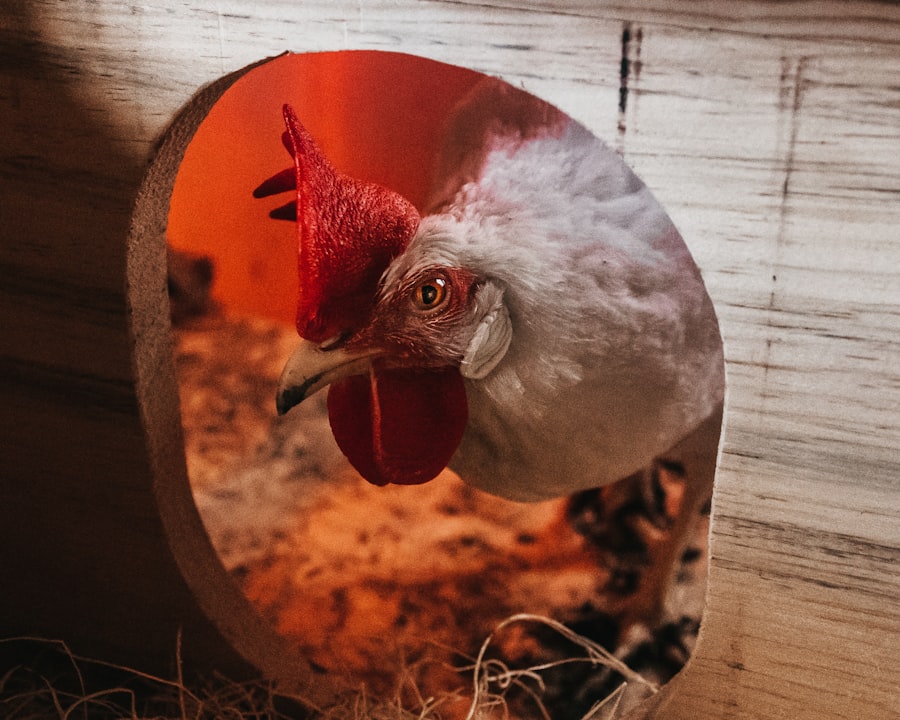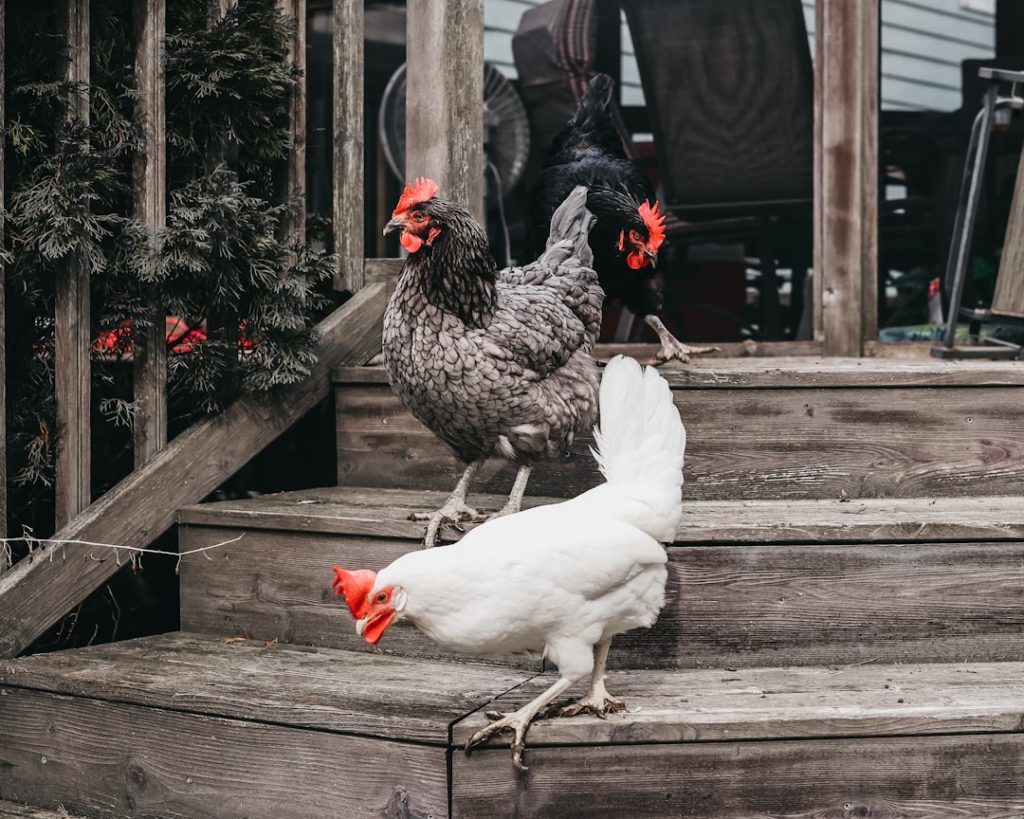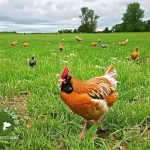Selecting the appropriate chicken breed is essential for successful poultry farming. Chicken breeds vary widely in their characteristics and traits, with some excelling in egg production and others in meat yield. When choosing a breed, it is important to consider specific requirements and objectives for the flock.
For those primarily interested in egg production, breeds such as Rhode Island Red, Leghorn, and Australorp are highly recommended. These breeds are known for their high egg-laying capacity and are well-suited for backyard flocks. Conversely, for meat production, breeds like Cornish Cross and Freedom Ranger are popular choices due to their rapid growth and high-quality meat yield.
Some chicken breeds are also valued for their ornamental qualities. Silkie and Polish chickens, for example, are known for their distinctive appearance and can be attractive additions to a backyard flock. The ideal breed selection depends on individual goals and preferences, necessitating thorough research of different breeds to find the most suitable option.
When selecting a chicken breed for a backyard flock, multiple factors should be taken into account. These include egg-laying capacity, meat production potential, and ornamental value. Careful consideration of these factors and thorough research of various breeds will help ensure a successful and rewarding experience in raising backyard chickens.
Table of Contents
Key Takeaways
- Consider the climate, space, and purpose of raising chickens when choosing the right breed
- Provide a cozy coop with proper ventilation, nesting boxes, and perches for the chickens to roost
- Offer a balanced and nutritious feed that includes grains, protein, vitamins, and minerals
- Ensure clean and fresh water is always available for the chickens to drink
- Schedule regular health checks and vaccinations to prevent diseases and maintain the well-being of the chickens
- Protect the coop with secure fencing, locks, and predator-proofing measures
- Allow for free range grazing to give the chickens access to natural foraging and exercise opportunities
Creating a Cozy Coop
Size Matters
The size of your coop will depend on the number of chickens in your flock. As a general rule of thumb, each chicken should have at least 2-3 square feet of space inside the coop. This allows them to move around comfortably and prevents overcrowding.
Ventilation is Key
Additionally, providing adequate ventilation is crucial for maintaining good air quality inside the coop. Proper ventilation helps prevent moisture buildup and reduces the risk of respiratory issues in your chickens.
Nesting Boxes: A Safe Haven
Nesting boxes are another important feature of a cozy coop. These boxes provide a safe and comfortable place for your hens to lay their eggs. Each nesting box should be large enough to accommodate a hen and lined with clean bedding to keep the eggs clean and protected. By creating a cozy coop with ample space, good ventilation, and comfortable nesting boxes, you can provide a safe and comfortable environment for your flock to thrive.
Providing Nutritious Feed

Providing nutritious feed is essential for keeping your chickens healthy and productive. A well-balanced diet is crucial for supporting egg production, promoting healthy growth, and maintaining overall health in your flock. When it comes to feeding your chickens, it’s important to provide a mix of commercial feed, fresh greens, and supplemental treats to meet their nutritional needs.
Commercial chicken feed is formulated to provide the essential nutrients that chickens need to thrive. Look for a high-quality feed that is specifically designed for laying hens or meat birds, depending on the purpose of your flock. In addition to commercial feed, fresh greens such as lettuce, kale, and spinach can be offered as healthy treats for your chickens.
These greens provide essential vitamins and minerals that support overall health and well-being. Supplemental treats such as mealworms, fruits, and vegetables can also be offered in moderation to provide variety in your chickens’ diet. However, it’s important to avoid overfeeding treats, as this can lead to nutritional imbalances and obesity in your flock.
By providing a well-balanced diet that includes commercial feed, fresh greens, and supplemental treats in moderation, you can ensure that your chickens receive the essential nutrients they need to stay healthy and productive. When it comes to providing nutritious feed for your backyard flock, there are several key considerations to keep in mind. Commercial chicken feed is formulated to provide essential nutrients that support egg production, healthy growth, and overall health in your flock.
In addition to commercial feed, fresh greens such as lettuce, kale, and spinach can be offered as healthy treats to provide essential vitamins and minerals. Supplemental treats such as mealworms, fruits, and vegetables can also be offered in moderation to provide variety in your chickens’ diet. By providing a well-balanced diet that includes commercial feed, fresh greens, and supplemental treats in moderation, you can ensure that your chickens receive the essential nutrients they need to stay healthy and productive.
Ensuring Clean Water
Ensuring clean water is essential for keeping your chickens healthy and hydrated. Water is crucial for supporting digestion, regulating body temperature, and promoting overall health in your flock. When it comes to providing water for your chickens, it’s important to offer clean, fresh water at all times and regularly clean and maintain their waterers.
Clean waterers are crucial for preventing the spread of bacteria and disease in your flock. Regularly cleaning and sanitizing waterers helps ensure that your chickens have access to clean water that is free from contaminants. Additionally, it’s important to regularly check waterers for leaks or clogs that could prevent your chickens from accessing water.
In addition to providing clean waterers, it’s important to offer fresh water at all times. Chickens can consume a surprising amount of water each day, especially during hot weather or when laying eggs. Make sure that waterers are filled with fresh water daily and provide enough capacity to meet the needs of your entire flock.
By ensuring clean water is always available and regularly maintaining their waterers, you can help keep your chickens healthy and hydrated. Water is crucial for supporting digestion, regulating body temperature, and promoting overall health in your flock. By providing clean waterers that are regularly cleaned and sanitized, as well as offering fresh water at all times, you can ensure that your chickens have access to the clean water they need to stay healthy and hydrated.
Regular Health Checks
Regular health checks are essential for monitoring the well-being of your flock and identifying any potential issues early on. By regularly observing your chickens and performing routine health checks, you can help prevent illness and ensure that your flock remains healthy and productive. During health checks, it’s important to observe your chickens’ behavior, appearance, and overall condition.
Look for signs of illness or injury such as lethargy, abnormal droppings, or changes in appetite. Additionally, check for any signs of parasites such as mites or lice on their feathers or skin. In addition to observing your chickens’ behavior and appearance, it’s important to perform routine physical exams to check for any abnormalities or signs of illness.
This includes checking their eyes, ears, beak, feet, and vent for any signs of injury or disease. By performing regular health checks and observing your flock closely, you can help identify any potential issues early on and take appropriate action to keep your chickens healthy. Regular health checks are essential for monitoring the well-being of your flock and identifying any potential issues early on.
By observing your chickens’ behavior, appearance, and overall condition, you can help prevent illness and ensure that your flock remains healthy and productive. Additionally, performing routine physical exams can help identify any abnormalities or signs of illness early on so that you can take appropriate action to keep your chickens healthy.
Protecting from Predators

Securing the Coop
One of the most effective ways to protect your chickens from predators is by securing their coop with sturdy fencing and locks. Make sure that all openings are securely covered with hardware cloth or wire mesh to prevent predators from gaining access to your flock. Additionally, consider installing motion-activated lights or alarms around the coop to deter nocturnal predators.
Providing a Secure Outdoor Run
In addition to securing their coop, it’s important to provide a secure outdoor run where your chickens can safely roam during the day. This run should be enclosed with sturdy fencing that extends underground to prevent digging predators from gaining access. Providing a secure outdoor space allows your chickens to enjoy free-range grazing while remaining protected from potential threats.
Comprehensive Protection
By taking steps to protect your chickens from predators through secure fencing, locks on coop openings, motion-activated lights or alarms around the coop, as well as providing a secure outdoor run with sturdy fencing that extends underground; you can help ensure their safety and well-being.
Allowing for Free Range Grazing
Allowing for free-range grazing is beneficial for both the health of your chickens and the quality of their eggs or meat. Free-range grazing allows chickens to exercise natural behaviors such as scratching at the ground for insects or pecking at grasses and plants. This not only provides mental stimulation but also contributes to a more varied diet which can result in healthier eggs or meat.
In addition to mental stimulation and varied diet benefits; free-range grazing also allows chickens access to natural sunlight which is beneficial for their overall health. Sunlight exposure helps regulate their internal clocks which can improve sleep patterns as well as egg-laying schedules. Furthermore; allowing free-range grazing also reduces feed costs as chickens will supplement their diet with insects or plants they find while grazing which means less reliance on commercial feed.
In conclusion; allowing free-range grazing provides numerous benefits including mental stimulation through natural behaviors such as scratching at the ground or pecking at grasses; varied diet leading to healthier eggs or meat; access to natural sunlight which improves overall health; reduced feed costs due to less reliance on commercial feed; improved sleep patterns; as well as regulated egg-laying schedules. In conclusion; allowing free-range grazing provides numerous benefits including mental stimulation through natural behaviors such as scratching at the ground or pecking at grasses; varied diet leading to healthier eggs or meat; access to natural sunlight which improves overall health; reduced feed costs due to less reliance on commercial feed; improved sleep patterns; as well as regulated egg-laying schedules.
If you’re interested in learning more about how to keep feeder chickens, you may also want to check out this article on whether quails sit on their eggs. Understanding the behavior of different poultry can help you better care for your chickens and ensure their health and well-being.
FAQs
What are feeder chickens?
Feeder chickens are chickens that are raised specifically for meat production. They are typically raised in large numbers on commercial farms and are commonly used for meat production.
What do feeder chickens eat?
Feeder chickens are typically fed a diet of commercial chicken feed, which is formulated to provide the necessary nutrients for their growth and development. This feed may include grains, protein sources, vitamins, and minerals.
How do you keep feeder chickens healthy?
To keep feeder chickens healthy, it is important to provide them with a clean and comfortable living environment, access to fresh water at all times, and a balanced diet. Regular monitoring for signs of illness and prompt veterinary care when needed is also important for maintaining their health.
What kind of housing do feeder chickens need?
Feeder chickens can be housed in a variety of structures, including chicken coops, barns, or other enclosed spaces that provide protection from predators and the elements. The housing should be well-ventilated, provide adequate space for the number of chickens being raised, and be kept clean to prevent the spread of disease.
How do you protect feeder chickens from predators?
To protect feeder chickens from predators, it is important to secure their housing with sturdy fencing and to regularly inspect for any signs of damage or potential entry points for predators. Additionally, providing a secure shelter for the chickens to retreat to at night can help protect them from nocturnal predators.
What are some common health issues for feeder chickens?
Common health issues for feeder chickens may include respiratory infections, parasites, and nutritional deficiencies. Regular monitoring for signs of illness, providing a balanced diet, and maintaining a clean living environment can help prevent these health issues.
Meet Walter, the feathered-friend fanatic of Florida! Nestled in the sunshine state, Walter struts through life with his feathered companions, clucking his way to happiness. With a coop that’s fancier than a five-star hotel, he’s the Don Juan of the chicken world. When he’s not teaching his hens to do the cha-cha, you’ll find him in a heated debate with his prized rooster, Sir Clucks-a-Lot. Walter’s poultry passion is no yolk; he’s the sunny-side-up guy you never knew you needed in your flock of friends!







